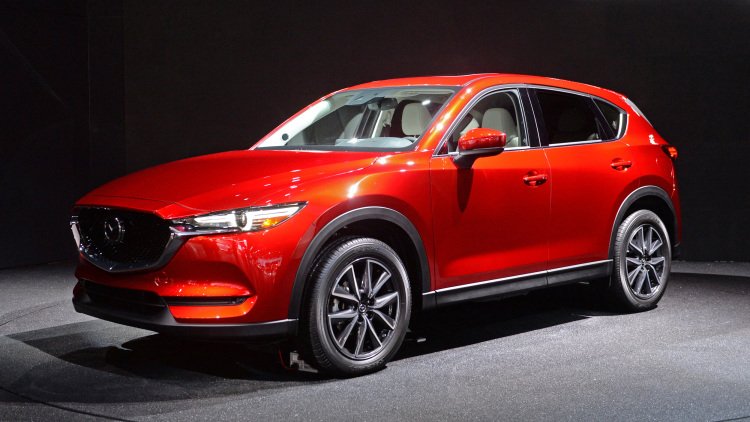Premium design and diesels: Mazda may be the next VW

One of the themes of our discussion was the company's desire to move its lineup toward a more premium, upscale feel and image – both in terms of vehicle design and powertrains. We realized the company may be looking to take a page from Volkswagen's American playbook, positioning itself as a prime purveyor of affordable, upscale – and most importantly, fun to drive – automobiles.
In the case of design, Flynn talked about how Mazda's KODO design language is going to evolve; that the goal is to simplify and refine the look. We discussed the CX-5 as an example of this evolution. Flynn pointed out that the goal was to add more refinement and simplicity, and showed how Mazda achieved this on the CX-5 by straightening the curves from the previous model to give it more visual length and a more taut shape. The grille also was given more depth and detailing, which isn't simplified per se, but does provide a more premium look.
Mazda's upcoming diesel engines are another piece to Mazda's premium puzzle. The company will finally offer a diesel on the CX-5. While Mazda planned not to use urea-injection, it finally resorted to the system so the engine could both meet performance benchmarks and emissions standards. In addition to the efficiency of the engine, Brown said that diesel engines have a premium nature for buyers. This is due in part to the luxury automakers that mainly offer them in the US, such as BMW and Mercedes-Benz, and to the fact that the technology will add some cost to the product.
If all of this sounds familiar, it's because you know these characteristics used to describe Volkswagen: a company known for upscale, affordable cars, providing great driving dynamics – and formerly, for efficient and fun-to-drive TDI diesel engines. While we didn't touch on the driving experience of modern Mazdas in our interview, you can simply look at any of our reviews to see that we generally like what the company builds.
The only downside is that we may have to wait a while for some models, and others may never show up here. Brown and Flynn both said that the Mazda2 is unlikely to be offered in the US as anything other than the Toyota Yaris iA, since it's hard to convince people that a subcompact is premium. No surprise there.
Also, performance models, such as a future Mazdaspeed3, are a ways off, something that reinforces what we've heard before. Brown and Flynn said the company is focused on making the core line-up cohesive, and that every model supports the brand's image. They said Mazda, a tiny company compared to its rivals and with no broad partnership with a major automaker, can't afford to have a misstep or to do a car "half-assed" as Flynn put it. So the company probably won't be working on specific performance models until the line-up is up-to-date once again.
Related News


